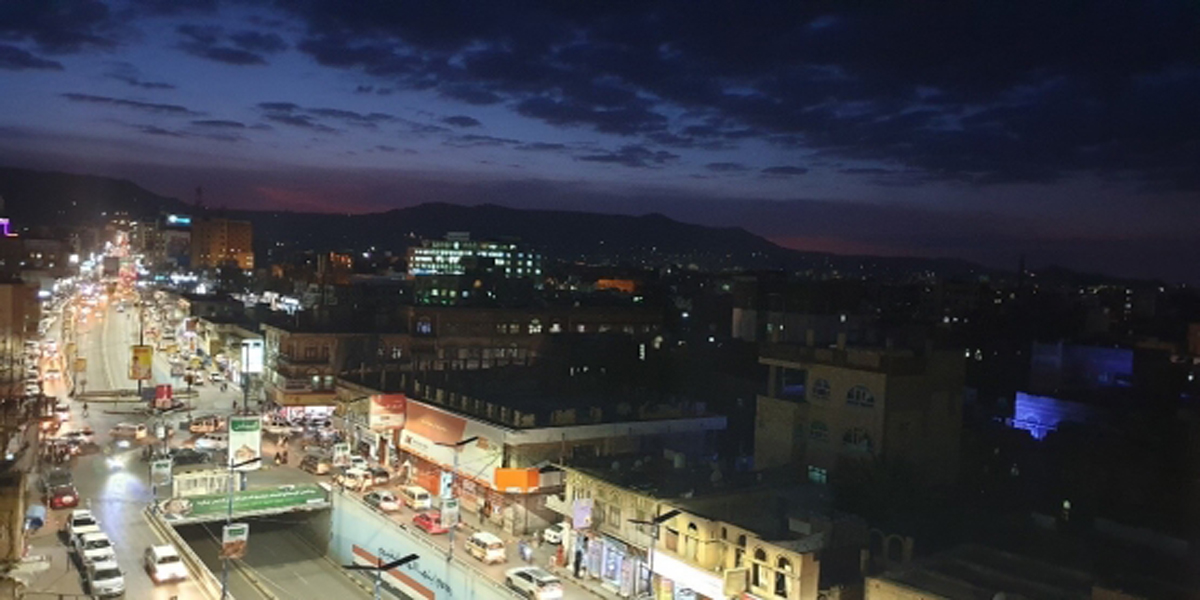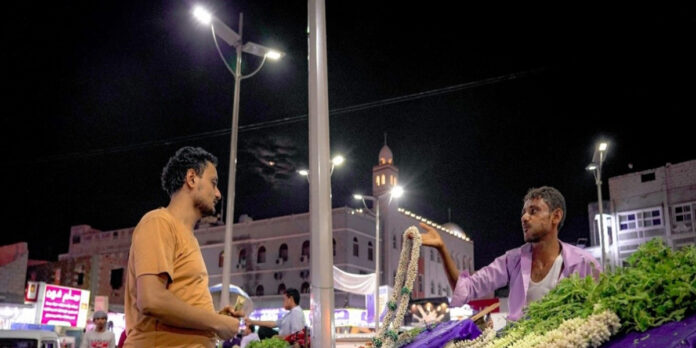You will not imagine how I felt when I see the streets lit. He reminded me of the old days. He gave me hope that the war will end one day, and electricity will return to us again. “These are the words that the Yemeni citizen Abdel Moneim said, filled with overwhelming joy simply because one of the streets of the Yemeni capital, Sana’a, was powered by solar energy. The joy included the residents of the capital. The same words were said by Abd al-Rahman and others who rejoiced at the new project launched by the World Bank in the Yemeni capital, Sana’a and Aden.

Even before the current conflict began in Yemen, many residents of the war-torn country were already denied basic electricity services. The situation deteriorated further when the conflict worsened at the beginning of 2015. The percentage of Yemenis who had access to electricity decreased from 66% in 2014 to less than 10% at the end of 2017. The night lights flashed by satellite images reflected a 75% decrease in electricity consumption Approximately.
According to the report conducted by the World Bank in partnership with the government of Yemen, it was found that approximately 55% of the infrastructure assets in the electricity sector in 16 cities included in the evaluation were destroyed, and that only 12% of that infrastructure is operating at full capacity, and the lack of public networks operating It has a negative impact on the provision of other important services, especially in the sectors of health, education, water and sanitation, and the consequences this has had for development and poverty. For example, a lack of electricity has disrupted the treatment of wastewater treatment plants that have contributed – among other reasons – to a large cholera outbreak.
In post-conflict scenarios, international development institutions, such as the World Bank, typically use their financial resources and technical expertise to rehabilitate public infrastructure through large-scale investment projects. But in the case of Yemen, which is still in the midst of conflict and needs to expedite the restoration of services, the World Bank has focused on smaller energy sources distributed outside the public grid, such as easier, faster, and more flexible solar energy, whose costs are steadily decreasing compared to traditional grid-connected energy solutions or Fossil fuel dependent.
In 2017, the World Bank’s International Development Association began helping to restore a sense of normalcy in the country by restoring basic urban services through the Emergency Integrated Urban Services project in Yemen. In cooperation with the United Nations Office for Project Services (UNOPS), the bank is financing the off-grid solar PV solutions to power schools, hospitals, streetlights, and water and sanitation facilities.
Today the project helps provide more than three thousand integrated solar lighting system with LED lights to illuminate the streets of Sana’a and Aden to cover the city’s roads over a distance of 50 km. Each system consists of 130 solar panels and 80W power-saving LED lights all put into one easy-to-install unit, along with integrated storage batteries that allow streetlights to work for three days even in cloudy environments. Thanks to the extension of its shelf life to 25 thousand hours, LED lights help greatly to reduce the cost of maintenance and increase sustainability because they help to avoid frequent replacements, in contrast to traditional lights.
This innovative blend of solar energy and energy efficient street lighting is the first of its kind in any bank operation. With lower prices for both PV panels and LEDs and an increased efficiency, this type of solution can be a candidate for simulation in other countries plagued by fragility, conflict and violence.

